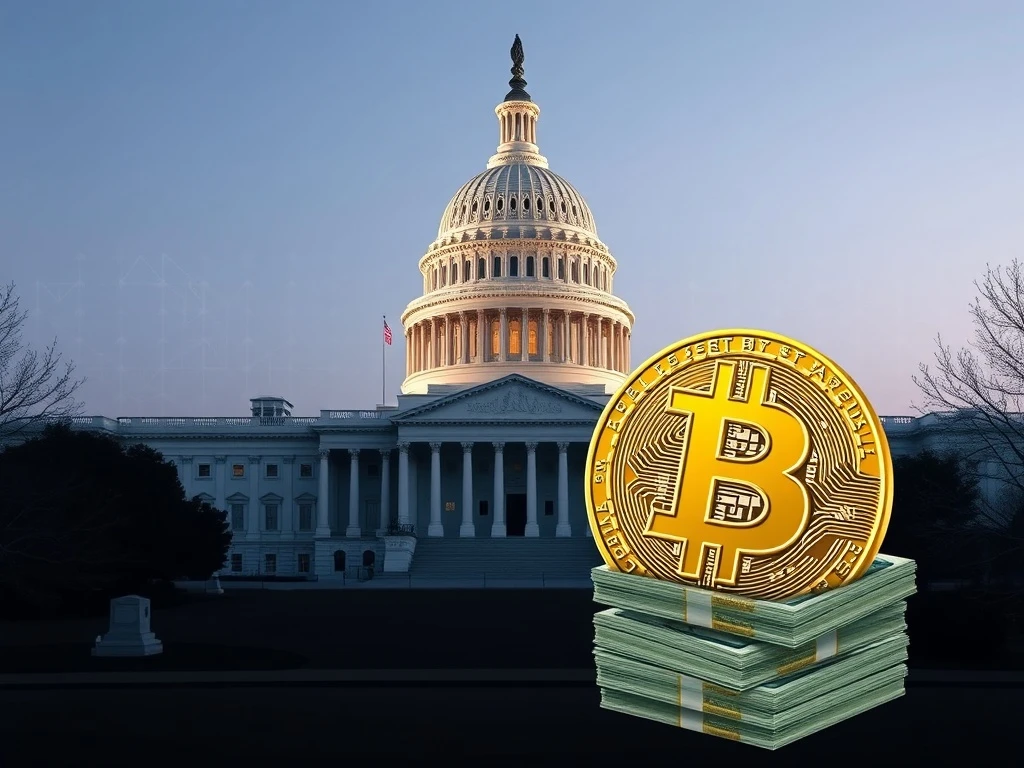US Crypto Regulation: Crucial Bills Revived After House Vote Setbacks

The world of cryptocurrency is always buzzing with activity, and today was no exception. From pivotal legislative battles in the US Congress to a multi-billion dollar Bitcoin purchase shaking up the market, staying informed is key. Let’s dive into the most significant developments that shaped the crypto landscape today, particularly focusing on the latest in US crypto regulation and major market movements.
US Crypto Regulation: What’s the Latest on Key Bills?
After an initial stumble, the path for key crypto bills in the US House of Representatives is back on track. US lawmakers are set to reconsider a series of crypto bills following a procedural setback earlier in the week. On Wednesday, the House voted 215-211 to allow reconsideration of a package that includes legislation designed to regulate payment stablecoins, establish a clear crypto market structure, and restrict the development of a US central bank digital currency (CBDC). This crucial House vote paves the way for potential amendments and votes on the bills themselves before Congress’s August recess.
The initial failure on Tuesday saw 13 House Republicans vote against the resolution, despite public urging from former US President Donald Trump. Several dissenting lawmakers expressed concerns about the lack of specific CBDC provisions within the stablecoin bill, highlighting ongoing debates about the scope and direction of digital asset legislation.
A Massive Bitcoin Purchase: Cantor Fitzgerald’s Bold Move
Beyond the legislative arena, the crypto market witnessed a significant development with financial services firm Cantor Fitzgerald. Reports indicate Cantor Fitzgerald plans to execute a massive Bitcoin purchase worth $3.5 billion from Adam Back’s Blockstream Capital. This deal aims to create a new company specifically to hold the acquired Bitcoin.
Blockstream is expected to contribute up to 30,000 Bitcoin in exchange for shares in Cantor Equity Partners 1, a special purpose acquisition company (SPAC), which will be rebranded as BSTR Holdings. The plan also includes raising up to $800 million in additional capital for further Bitcoin acquisitions, building on a previous $3.6 billion crypto deal Cantor Fitzgerald made earlier this year with SoftBank and Tether. This move underscores growing institutional confidence and capital flow into the digital asset space.
Decoding the Stablecoin Bill and Its Impact
A central piece of the legislative package is the stablecoin bill, known as the Guiding and Establishing National Innovation for US Stablecoins, or GENIUS Act. This bill aims to regulate payment stablecoins within the US. While seen as a step towards clearer regulatory frameworks, it has faced scrutiny.
Some Republican lawmakers expressed concerns about the bill’s provisions regarding Central Bank Digital Currencies (CBDCs), arguing it lacked sufficient restrictions on government-issued digital currencies. The debate highlights the complexities of integrating digital assets into existing financial systems while addressing privacy and control concerns for citizens.
What Does This House Vote Mean for Crypto’s Future?
The recent House vote to reconsider these crypto bills underscores the ongoing efforts to establish a comprehensive regulatory framework for digital assets in the United States. While the path forward remains subject to debate and potential amendments, the fact that these bills are back on the table signifies continued momentum for US crypto regulation.
The legislative process is often slow, but the bipartisan, albeit sometimes contentious, engagement suggests that lawmakers recognize the growing importance of the crypto industry. The outcomes of these legislative efforts will significantly shape how Bitcoin, stablecoins, and the broader digital asset ecosystem operate within the US, impacting innovation and adoption.
Summary: Navigating Crypto’s Dynamic Landscape
Today’s crypto headlines painted a picture of both legislative determination and significant market activity. The revival of key US crypto bills indicates a persistent drive for clearer regulation, even amidst political hurdles. Simultaneously, the proposed multi-billion dollar Bitcoin purchase by Cantor Fitzgerald highlights institutional confidence and growing capital flow into the digital asset space. These twin developments emphasize that cryptocurrency continues to evolve rapidly, demanding attention from both policymakers and investors worldwide. As always, staying informed on these dynamic trends is essential for navigating the evolving crypto landscape.










